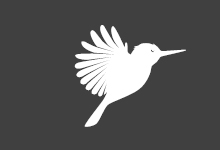
BIOKON – Education
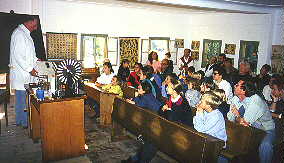 Primary and Secondary Education
Primary and Secondary Education
Primary and Secondary Education
The curriculae for primary and secondary education in Germany are currently undergoing major changes, partly as a reaction to the international PISA studies. It has becomes obvious that traditional divisions of science like biology, chemistry, and physics cannot be strictly separated any longer. The accumulation and reproduction of pure facts often used as indicators for learning success are not seen anymore as adequate learning goals in our increasingly complex world. A more general and yet more profound understanding of science, scientific thinking, and scientific methods is necessary to cope with the flood of information that we have to face today. Soft skills, like communication skills, team working, and creative thinking, are essential tools for a career in science or industry. Bionics is based on a transdisciplinary approach, emphasizing the communication of experts from different fields and carrying out projects in teams to cover the whole range from basic research to technical application and industrial development. Subsequently, numerous amendments of curriculae are now incorporating bionics as a modern model of doing science.
There is, however, still a lack of well-prepared bionics-related teaching materials. Several centers of BIOKON are therefore developing teaching modules focusing on bionics and biomechanics, the methodological base of bionics. All BIOKON centers with special interest in didactics and teaching are grouped in the BIOKON committee A2. The following linked pages introduce the concept of nature-oriented learning as developed by the BIOKON center Münster. Teachers can specifically learn about projects on bionics and biomechanics in school, which can be employed in science teaching or various other subjects.
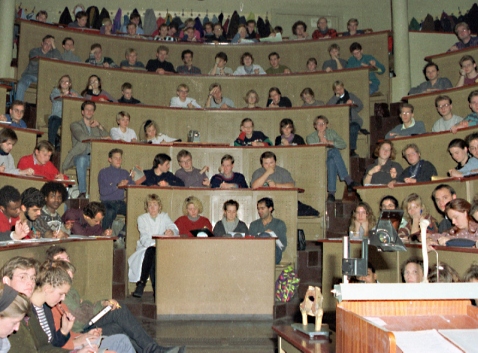
Tertiary Education
The combination of the terms Biologie and Technik, i.e. engineering, already indicates the transdisciplinary character of the field of bionics. Biology or engineering on their own are already huge fields, consisting of many different disciplines. This fact is reflected by the broad range and diversity of topics taught at universities by the name of bionics. The menu point Studium (tertiary education) offers links to all German universities and schools of applied sciences that provide courses in bionics and related disciplines.
Universities and Schools of Applied Sciences that Offer Courses in Bionics
School of Applied Sciences of Bremen
The School of Applied Sciences of Bremen offers the worldwide unique International Course in Bionics (ISB) with an academic degree as Bachelor of Science.
The normal course duration is seven semesters and contains six modularly structured study semesters plus an integrated semester abroad in the 5th semester. The course is concluded with exams and a bachelor thesis project.

Westfälische Hochschule Gelsenkirchen, Bocholt, Recklinghausen

Hochschule Rhein-Waal – Bionics/Biomimetics M.Sc

Fachhochschule und Universität Bielefeld
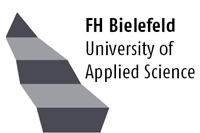
Fachhochschule Kärnten
At the beginning of the 21 century our industrial society is confronted with major challenges in regard to energy and environment. Using new insights from the developing cross-sectional discipline Biomimetics, we can utilize strategies and procedures which have been successfully developed by nature over four billion years of evolution. The international Master program “Bionik / Biomimetics in Energy Systems” focuses international for the first time on the area of Biomimetics and Energy.
Bionik/Biomimetics in Energy Systems (Master)

University of Freiburg
In Freiburg, bionics is part of the post grad courses in Functional Morphology and Biomechanics . The exact papers and courses vary from year to year. In 2004, the following lectures and seminars were held:
– Lecture with practical exercises: six hours on plant bionics as part of the class Functional Morphology and Biomechanics of Plants II (2004/2005 together with Dr. Gorb, MPI Stuttgart)
– Seminar: Modern Methods of Utilizing Plants, Biotechnology, Biomimetics with five topics regarding bionics (together with Prof. Dr. Schneider, PH Freiburg).
More information: Dr. Deane Harder
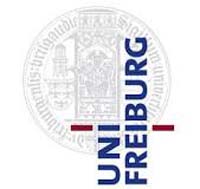
Steinbeis Hochschule Berlin
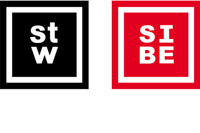
Hochschule Hamm-Lippstadt
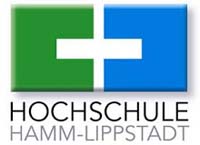
Universität Bayreuth
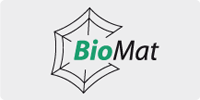
Technical University of Berlin
Department of Bionics and Evolution Technique
Lecture: Bionics I
Lecture: Bionics II – bio-sensorics and bio-informatics
Lecture: Evolution Technique I
Lecture: Evolution Technique II
Lab course: Bionics I and II
Lab course: Evolution Technique I and II
Seminar: selected chapters on bionics
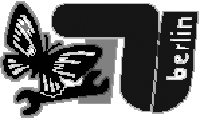
Technische Universität Berlin

Universität Bonn

Technical University of Ilmenau
At the TU Ilmenau, bionics is taught at the newly established department of biomechatronics of the faculty of structural engineering. Classes in bionics can be taken in combination with courses in mechanics and electronics.

Hochschule Karlsruhe

RWTH Aachen Technical University of the Rhine-Palatinate and Westphalia
Bionics Center of Aachen
Lecture Series on Bionics I (winter semester):, 2 lectures and 1 tutorial per week:
Introduction and methods of biology and engineering
This lecture and the accompanying tutorial will introduce the essential terminology of the various participating institutes and disciplines so that a common communication platform is established.
Lecture Series on Bionics I (summer semester):, 2 lectures and 1 tutorial per week:
Building on the lecture series of the winter semester, this lecture series has a thematic focus on concrete problems and their biological and technical realization. Content of Lecture Series II
Seminar on Bionics (summer semester):, 2 tutorials per week:
The seminar is based on discussion, i.e. all participants prepare texts, which are presented and are subsequently the topic of a moderated discussion.
Lab Course Neuro-Bionics: 4 weeks, whole day:
– Modeling bi-neural processing, 1 week
Prof. Wagner and Laurent Calmes, Institute of Biology II
– Bio-hybrid technology, 2 weeks
T. Künzel, N. Lautemann, B. Mönig, H. Luksch and P. Bräunig, Institute for Biology II
– Examples of bionic research in Aachen and Jülich, 1 week.

Technische Universität München – Leonardo Da Vinci Zentrum

htw saar
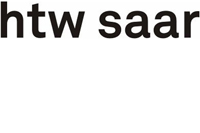
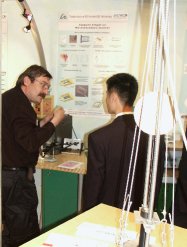 Events like fairs and
Events like fairs and
Events like fairs and exhibitions
The increasing number of bionic products available on the market convincingly demonstrate how huge the potential is for nature derived solutions for the development of innovative products. Therefore, the demand of the general public for more details about the work of bionic scientists is enormous. Numerous popular scientific books try to firmly establish the science of bionics in society see the list of literature for more details. If you are interested you can learn more about bionics at fairs, exhibitions, science fairs, and public talks, e.g. at the Hannovermesse, EUROMOLD, AMAM, or various other fairs. The Museum for Industry and Labour (Museum für Technik und Arbeit, LTA) in Mannheim has gathered a unique collection of bionic-related exhibits. There are currently two exhibitions a small and a large one that can be rented out. For more information, please contact the BIOKON center Mannheim.
